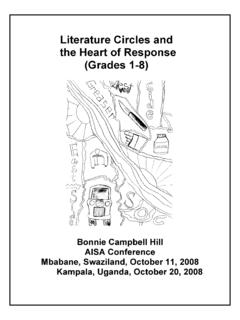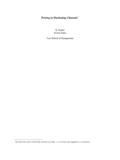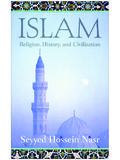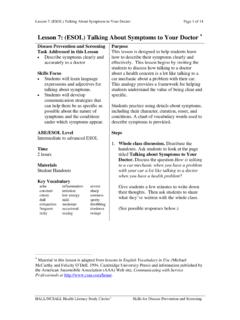Transcription of Excellence Christian School Curriculum Guide
1 Excellence Christian School Curriculum Guide Principal, Dr. Erika Lee Backwards Mapping our Way to Student Success 9010 Frank Tippett Rd. Upper Marlboro, Md. 20772. 301 868 1873. 1. The Lower School Curriculum Overview (Grades K3-4). Each lower School classroom is self-contained (with the exception of 4th grade which is departmentalized) with the homeroom teacher serving as the instructor for all core subject areas including: Bible, math, reading, language arts, science and social studies. Students also participate in a variety of specialty classes which include: Physical education, music, art and Spanish. Students in the Lower School participate in weekly Chapel Sessions which emphasize the importance of Christian Character and values as taught in the Word of God. Our K3-K5 Programs utilize the ABEKA reading program which offers a strong foundation on which to build reading and writing skills essential for School success.
2 Students are provided with the opportunity to explore their world through phonemic awareness, reading, writing, activity time, language enrichment and Bible time. In addition, students engage in hands on science and interactive social studies lessons using the Houghton Mifflin series. Math Grades K5-2 utilize research based Saxon Program provides a spiral Curriculum which builds on previously taught skills and fosters mastery, problem solving, critical thinking, and real life application. Math Grades 3-4 utilize the Purposeful Design Series which also builds on previously taught skills and fosters mastery, problem solving, critical thinking, and real life application. In addition it provides a foundation for mastery of basic multiplication and division facts. We have implemented the Soar to Success Program which will provide additional learning opportunities for struggling students to reach their potential in reading comprehension.
3 Six main reading strategies will be targeted throughout the 30 week intensive program which will reinforce the skills and strategies already being taught during the 120 minutes of Reading/Language Arts in the classroom setting. This program will be available to students in grades 1-3 who are recommended by their core teachers. literature Circles will provide students in grades K3-3rd the opportunity to meet with me to read a variety of rich literature and to discuss their responses and evaluation of the text. Each week we will engage in activities to promote critical thinking, listening and speaking skills. Each piece of literature will culminate with hands on activities to bring the text to life. This program is designed to make reading enjoyable as well as practical. Students in grades K5-4th grade will enjoy a literature rich reading, social studies and science program published by Houghton Mifflin.
4 This dynamic program engages students in the core subject areas by providing each student with the tools that they need to succeed. The program is built around the concept of reaching all learners through 2. differentiated instructional methods. A wide variety of resources are available to the teacher to match Curriculum materials with each type of learner. Small group interaction is at the heart of this program which allows the students to complete expeditions and hands on lab activities at their own pace, giving the core teacher the time to meet with each group and serve as the facilitator of the discovery lesson. The Houghton Mifflin provides teachers with the ability to meet individual student needs in small group settings. It also fosters mastery of core reading strategies by reinforcing them in both science and social studies. The Houghton Mifflin series offers a wide variety of expository and narrative text to support and enhance the reading, science and social studies Curriculum in grades 2-4.
5 Classroom libraries are leveled to meet the individual reading needs of each student and will promote the essential reading strategies needed for reading success. 3. Pre-Kindergarten Curriculum Pre-K students enter the classroom setting, some for the first time, eager and ready for School . K3-K4 students are energetic and imaginative. They seek adult approval and have a natural desire to learn and do their best. K3-K4 students are becoming more self confident and are willing to try new things. All of our learning activities are presented in a way that meets the needs of these very active imaginative learners. Phonics and Reading The language arts Curriculum provides students with the opportunity to explore written and spoken language in a print rich learning environment. Students receive developmentally appropriate instruction using a variety of methods to meet the needs of individual learners.
6 Students are introduced to strategies that will assist them in developing strong skills in reading, listening, writing and speaking across all curricular areas. Recognition of name identify long and short vowels and consonants sounding of blends and one/two-vowel Words Reading of sentences and stories with one- and two-vowel words Manuscript Writing Formation of letters, blends, and words Writing of first name Poetry Twenty-eight poems and finger plays committed to memory Language Students will be able to develop their vocabularies through the exploration of various themes such as colors, modes of transportation, countries around the world, community helpers, health, safety, manners and self esteem. Language development listening skills discussion about transportation, countries, community helpers, health, safety and manners 4. Mathematics The math Curriculum engages students in activities that introduce them to number concepts using manipulatives, songs and interactive games to meet the needs of all learners.
7 Students build a foundation for future math skill acquisition as they explore number concepts and patterns. Rote counting from 1- 100. Recognize and understand concepts of 1-20. Writing numbers 1- 20. Recognize shapes and colors. Sort by shape, color and size. Recognize patterns Recognize and understand concepts of 0-20. Differentiate single numbers from teen numbers. Greater than/less than Sequencing What number comes before, after, between a series of numbers Simple addition Science Exploring Our World . Students will be able to perform simple hands on experiments. Students will learn and explore topics such as tools and machines, weights and measures, magnets, the 4 Seasons, Weather, the 5. Senses, the life cycles of plants and animals and the Water Cycle. Identify and name characteristics of the 4 Seasons Identify characteristics of Birds Identify characteristics of Mammals Identify characteristics of Reptiles and insects Identify tools and simple machines Learn to use a thermometer Identify animals that live in and characteristics of The Rain Forest.
8 Explore wind and weather Identify creatures in the Sea Examine various seeds Plant seeds and observe their life cycle. Identify the life cycle of a butterfly and frog. Identify Zoo animals. Learn about Earth Day and Recycling 5. Kindergarten Curriculum K5 students come to School ready and excited about the learning process. K5 is a year full of explorations and investigations as students engage in fun-filled, project based instructional activities. Ongoing parent communication is at the core of student success at this very crucail stage of development. Students blossom in the areas of academics, social development and spiritual awareness. Language Arts The language arts Curriculum provides students with a more in depth study of how written and spoken language work collaboratively to inspire lifelong readers and writers. Students are exposed to a variety of literature of various genres.
9 Students begin building a strong foundation for writing as they are introduced to sentence structure, sequencing and brainstorming techniques. In addition, students apply the foundational phonemic awareness strategies as they engage in reading for a variety of purposes to include: for enjoyment, for information and to perform a task. Students begin by learning the sounds of the vowels and consonants and progress to reading blends and words. Students are placed in reading circles. Students enjoy reading colorful and interesting books prepared especially for their age level help develop them into strong readers. Learning to read independently Identify story types (fantasy or realism). Use illustrations as picture clues Apply phonemic awareness Use letter and sound correlations while reading Retell stories by speaking, writing, or drawing Use new vocabulary Reading Critically Use meaning, structure and visual cues Make predictions and draw conclusions based on text Relate text to similar experiences Analyzing & Interpreting literature Identify different types of literature ( , poetry, nursery rhymes, folktales).
10 Identify literary elements (events, characters, setting, problem, solution). 6. Identify literary devices (repetition, rhyme, etc.). Read and respond to fiction, nonfiction and poetry Identify the structure of drama by acting out. Types and Quality of Writing Form letters properly Use sound/letter correlation to write phonetically Dictate a complete sentence Write to express a personal idea, to inform, or to express an opinion Write and illustrate with focus and for a purpose Write several sentences with one central idea Write in sequence with a beginning, middle and end Write using descriptive words, action verbs, questions and statements Mathematics The focus of Level K Mathematics is the development of an understanding of numbers and the ability to use numbers up to twenty. Students explore number concepts through the use of manipulatives and hands on activities to encourage the application of numbers in real-world situations.








